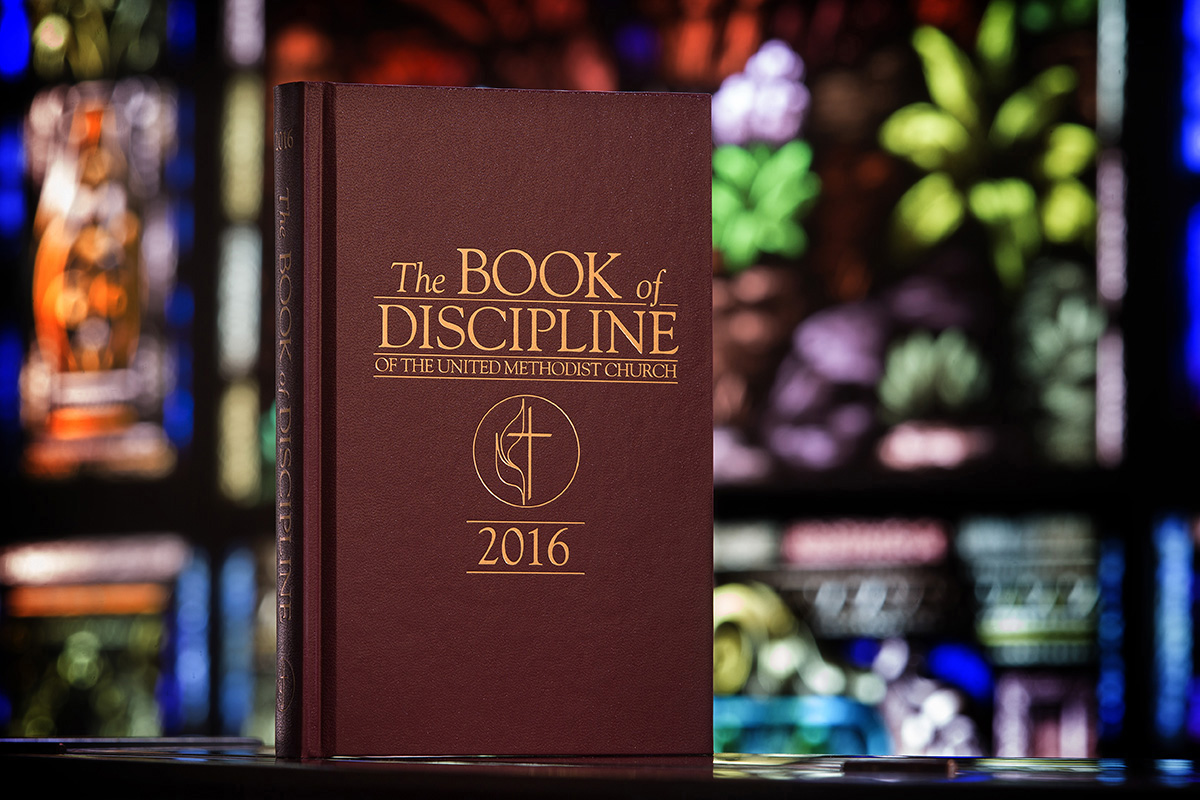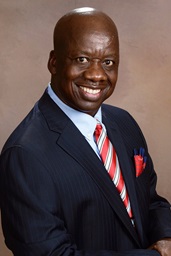Key points:
- The United Methodist Church’s top court has set its shortest fall docket in years.
- But the Judicial Council continues to face questions related to church exits.
- Also before the church court are two questions about the COVID-delayed General Conference.
Even with the denomination’s church-exit policy winding down, The United Methodist Church’s top court faces questions about disaffiliation procedures.
The Judicial Council has set its shortest fall docket in at least 15 years, with just six items. But at issue in half of those items is a provision in the Book of Discipline, the denomination’s law book, that allows churches to leave with property if they meet certain financial and procedural obligations. The church law expires at the end of this year.
The church court also faces two questions, not on the docket, about General Conference — the international denomination’s top legislative assembly.
The General Conference-related questions are not on the docket because they relate to a previous Judicial Council ruling and do not require additional briefs. Briefs for the docket items are due Aug. 30 and reply briefs are due Sept. 9.
The six items on the docket all stem from questions of law brought to bishops during this year’s annual conference sessions — the meetings of the denomination’s regional bodies.
United Methodist bishops routinely face questions of church law during the sessions at which they preside. The Discipline requires that any bishop’s decision of law must go before the Judicial Council for review. After the spring and summer annual conference sessions, the church court usually must review bishops’ responses to 20 or more questions each year.
But even with fewer questions before it, the Judicial Council must continue to deal with one of the biggest challenges in its more than 80-year history: trying to ensure an ongoing church split stays within the confines of church law.
More on the church court
General Conference elects the Judicial Council’s members and alternates. Four members are clergy and five laity. They serve on the church court as volunteers.
The Judicial Council, which has members from three continents, plans to hold its deliberations on its fall 2023 docket in October on the campus of Africa University in Mutare, Zimbabwe. At the onset of the COVID pandemic, the Judicial Council shifted to meeting online and held its first in-person session in four years this spring.
The session at the pan-African United Methodist university will mark the first time the denomination’s top court has met on the continent. The nine-member Judicial Council includes members who live in Liberia and Mozambique.
Briefs for the docket items are due Aug. 30 and reply briefs are due Sept. 9.
See the 2023 fall docket.
For more than 200 years, The United Methodist Church and its predecessors have maintained that church property is held in trust for the entire denomination.
However, after decades of intensifying debate and defiance over the denomination’s bans on same-sex weddings and “self-avowed practicing” gay clergy, the 2019 special General Conference approved what is now Paragraph 2553 in the Book of Discipline.
The provision offers congregations a limited right to exit the denomination with property. The church law was written to be only temporary, and the 2019 General Conference made it so the provision only applies in the U.S.
Since the provision took effect four years ago, more than 6,200 congregations — about 20% of U.S. churches — have received the required approvals to withdraw from The United Methodist Church.
More than 20 U.S. annual conferences have scheduled special sessions before the end of the year to vote on additional disaffiliation requests. The church law’s requirements include that departing churches receive the majority approval of their annual conference’s voters. Most of the exiting churches want to maintain bans related to homosexuality.
Since 2019, the Judicial Council has addressed multiple questions about the church law, including ruling that it is in line with the denomination’s constitution.
Still, as the recent U.S. annual conference season showed, bishops continue to deal with questions about how the provision applies under different scenarios.
At the North Carolina Annual Conference, Bishop Connie M. Shelton faced questions about the legality of the conference’s closure of Fifth Avenue United Methodist Church in Wilmington.
According to the most recent data from the denomination’s General Council on Finance and Administration, Fifth Avenue United Methodist Church’s attendance had declined in recent years and it had an average attendance of 18 people as of 2021.
The church was seeking to vote on disaffiliation under Paragraph 2553, when the conference leaders closed the historic, downtown church instead. The North Carolina Annual Conference subsequently approved the church’s closure when it met in June.
The conference closed the church under another provision of the Discipline, Paragraph 2549.3.b. The provision says that any time between annual conference sessions, the bishop and other conference leaders “may, in their sole discretion, declare that exigent circumstances exist that require immediate protection of the local church’s property, for the benefit of the denomination.”
In her decision of law, Shelton wrote that the actions of the annual conference “are completely consistent with all disciplinary mandates, including to spread the Gospel and strengthen our witness.”
Subscribe to our
e-newsletter
The church’s closure is not only a docket item before the Judicial Council but also has prompted a lawsuit in a North Carolina civil court. The conference has asked the civil court to dismiss the suit, arguing that the U.S. Constitution’s First Amendment precludes courts from second-guessing church-closure decisions.
At the California-Pacific Annual Conference, a pastor made a motion that the conference board of trustees negotiate with disaffiliating churches “a more equitable and reasonable formula for disaffiliation than the current Guidelines specify.” Bishop Dottie Escobedo-Frank ruled the motion out of order, and the pastor subsequently requested a ruling of law.
Paragraph 2553 allows annual conferences to develop additional standard terms that are not inconsistent with the disaffiliation provision. The California-Pacific Annual Conference is among a handful of conferences that is asking departing churches to pay a portion of their property value. In the California-Pacific Conference’s case, churches are asked to pay 50% of that value — a standard term added before Escobedo-Frank became the conference’s bishop this year.
In her response to the pastor’s request, Escobedo-Frank cited previous Judicial Council rulings that say parliamentary matters do not constitute proper questions of law. In Memorandum 1474, the Judicial Council said, “when a bishop rules that a matter is out of order, the same is a parliamentary ruling.”
During the clergy session of the Western Pennsylvania Annual Conference, Bishop Cynthia Moore-Koikoi faced questions about whether the conference properly handled the withdrawal of a clergy member who has since joined the Global Methodist Church. The theologically conservative breakaway denomination launched last year, and has been working to recruit disaffiliating congregations.
Moore-Koikoi said that some of the questions were based on inaccuracies and some were just seeking information, not proper questions of law. Her response noted that the pastor who raised the questions has since also withdrawn from The United Methodist Church.
In addition to questions raised about church and clergy departures, the Judicial Council is also facing two questions about its Decision 1472. That ruling addressed questions from the denomination’s Council of Bishops about General Conference, postponed by the COVID pandemic from 2020 to now 2024.
The church court ruled that annual conferences are permitted to hold elections to fill vacancies in their allotted General Conference delegations “provided vacancies cannot be filled with reserve delegates.”
The Commission on the General Conference, which plans the big meeting, wants clarification on whether the same applies to filling vacancies on jurisdictional and central conference delegations.
Jurisdictional conferences in the U.S. and central conferences in Africa, Europe and the Philippines elect bishops. General Conference delegates as well as an additional number of elected delegates serve these bodies. Delegates elected solely to their jurisdictional or central conference also serve as General Conference reserves.
But because the Judicial Council was not asked, the church court has not addressed how annual conferences should handle any vacancies left on their jurisdictional or central conference delegations after the depletion of their reserve pools.
A number of annual conferences held elections this spring and summer to fill empty seats on their delegations. But they are waiting for the church court’s ruling to see if the new jurisdictional and central conference delegates can be certified.
As part of Decision 1472, the majority of the Judicial Council also ruled that another regular session of General Conference must convene between the beginning of 2025 and the end of 2027 to get the legislative assembly’s usual four-year schedule back on track.
However, four of the nine Judicial Council members dissented from that part of the ruling. With that disagreement in mind, the General Council on Finance and Administration — the denomination’s finance agency — has asked the church court to reconsider that portion of the decision. It is up to the church court whether such a reconsideration will happen.
Hahn is assistant news editor for UM News. Contact her at (615) 742-5470 or newsdesk@umcom.org. To read more United Methodist news, subscribe to the free Daily or Friday Digests.




